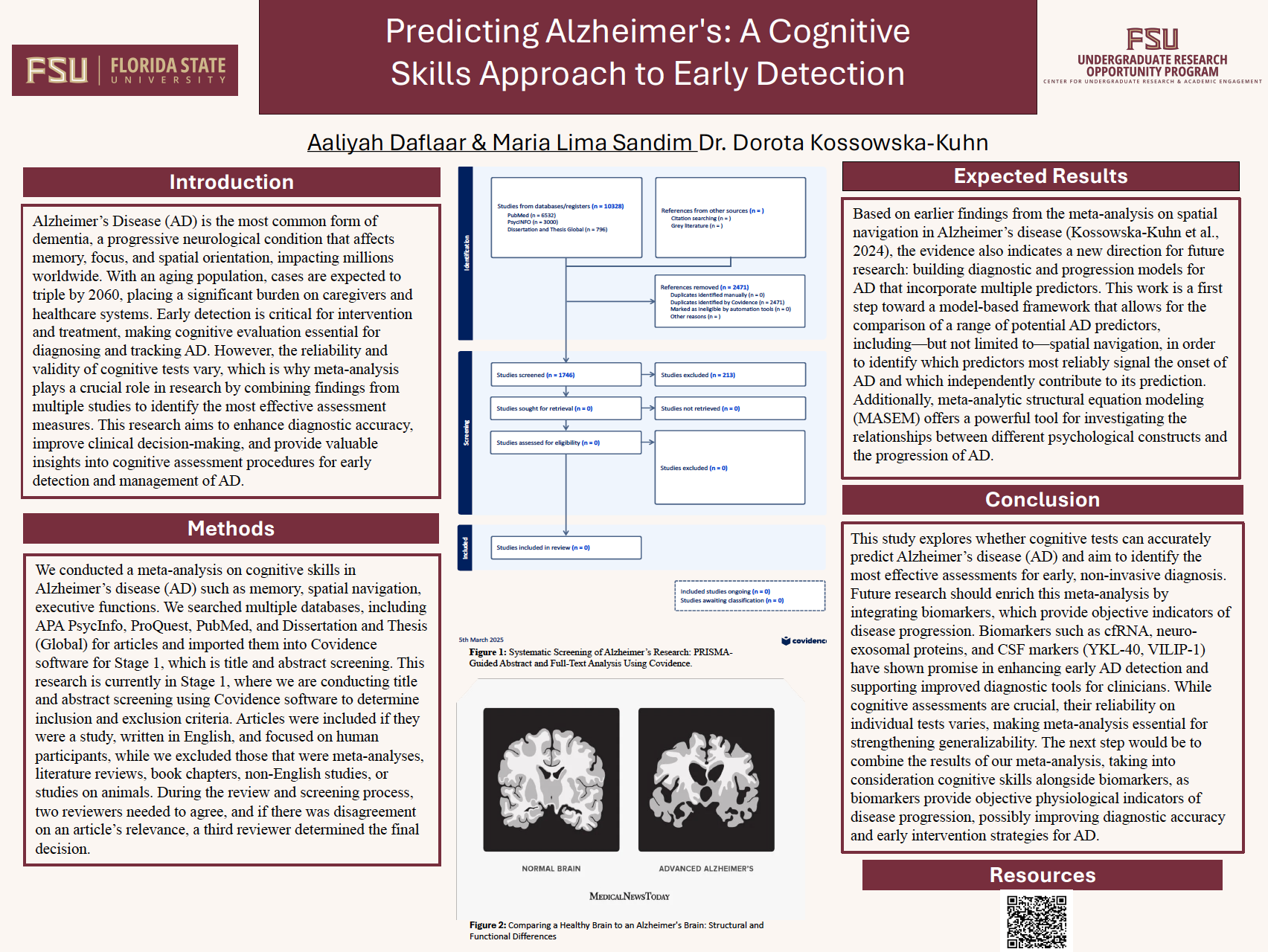Research Symposium
25th annual Undergraduate Research Symposium, April 1, 2025
Maria Lima Sandim Poster Session 1: 9:30 am - 10:30 am / Poster #43
BIO
I am an undergraduate student passionate about medicine, research, and community service. Currently pursuing a pre-med track, I’ve had the chance to obtain hands-on experience through hospital internships, shadowing physicians, and participating in research focused on dyslexia and Alzheimer’s disease. As a member of the Undergraduate Research Opportunity Program, I’ve developed strong skills in data analysis, academic writing, and collaboration. Outside of my coursework, I worked as a Learning Assistant for trigonometry, where I supported students in building confidence and understanding. I’m also involved in a Directed Individual Study project that focuses on helping Latino professionals in music therapy navigate the U.S. licensure process—combining my interests in healthcare and advocacy.
Predicting Alzheimer's: A Cognitive Skills Approach to Early Detection
Authors: Maria Lima Sandim, Dorota Kossowska-KuhnStudent Major: Biological Sciences
Mentor: Dorota Kossowska-Kuhn
Mentor's Department: Psychology, Arts and Sciences Mentor's College: Psychology, Arts and Sciences Co-Presenters: Aaliyah Daflaar
Abstract
The prevalence of dementia, especially Alzheimer's disease (AD), is predicted to increase as the
world's population ages, making early and precise diagnosis more important than ever. Our study
compares the efficacy of spatial navigation tests with other diagnostic predictors and examines their
predictive value in detecting mild cognitive impairment (MCI), a precursor to AD. By knowing
which markers independently influence the prediction of AD, early detection techniques can be
improved, which will ultimately improve patient care and the results of interventions. This study
investigates the possibility that deficiencies in spatial navigation could serve as an early indicator of
mild cognitive impairment (MCI) and its development into Alzheimer's disease. Spatial navigation
tests presents a promising tool for early detection because of the hippocampus's function in
navigation and its influence in early AD. We carried out a meta-analysis to measure the disparities in
spatial navigation abilities between older adults with MCI and those in good cognitive health. Our
results supported the diagnostic potential of spatial navigation tests with a significant standardized
mean difference. Future model-based meta-analyses that compare spatial navigation with other
predictors and determine their separate contributions to the diagnosis and progression of AD are
made possible by these findings. Finding reliable early predictors, such as spatial navigation test
results, can improve patient outcomes through permitting the earlier incorporation of support and
treatment plans, increase diagnostic accuracy, and enable prompt interventions.
Keywords: Alzheimer's, Dementia, Memory, Spacial Navigation

